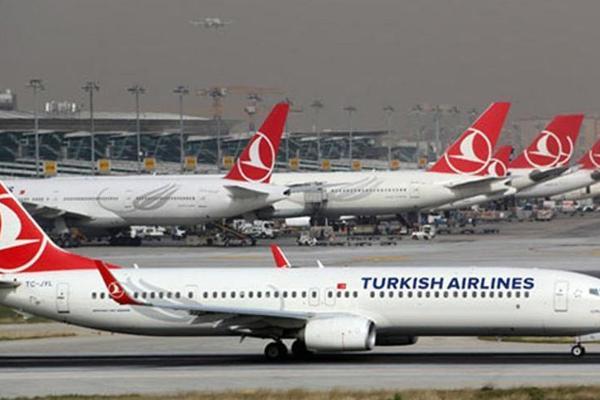Turkey’s flag carrier ready for vaccine delivery race
ISTANBUL


The aviation industry, plagued by the novel coronavirus pandemic, is ready to help in delivering a potential COVID-19 vaccine across the globe.
Experts calculate that the availability of the COVID-19 vaccine, as well as its global distribution and logistics, will be a challenging process, with 15,000 flights and 15 million cooler boxes needed to transport every 10 billion doses.
Commenting on the issue, İlker Ayci, the chairman of Turkish Airlines, emphasized that the company would undertake an important task when the vaccines get ready for distribution.
“As the airline that flies to the most countries in the world with 127 destinations, we have the equipment to provide all the storage and transportation conditions that the vaccine will need in our operation centers in Istanbul,” he said on Nov. 26.
“As a recent example of this, we’ve transported vaccines from China to Brazil,” he added.
He also said Turkish Airlines took on an important responsibility to ensure that the global food, medicine and medical product chain was not disrupted during the pandemic.
“Our successful air cargo brand, Turkish Cargo, has created an international air bridge with its experience, qualifications and flight network.
“We also used our wide-body passenger planes on our cargo flights to meet the demand.”
Last month, Turkish Cargo added six new locations to its direct cargo transportation destination list, bringing the total number to 95.
It has added London, Bucharest, Bangkok, Singapore, Beirut and Lahore to its growing list of destinations. With the newly added destinations, Turkish Cargo now has 31 direct flights to Europe, 22 to the Middle East and 16 to the Far East.
Turkish Cargo has become the fastest-growing player in the business, according to research conducted in September by the global management consultancy firm Kearney.
The report revealed that Turkish Cargo grew by 67 percent in the first half of 2020 and carried one out of every 20 air cargo flights around the world, increasing its global market share from 3.9 percent to 5.4 percent.
Turkish Cargo currently owns a fleet of 361 aircraft and has the world’s largest network.
Vaccine to boost recovery
Distribution of the vaccine will be very challenging, especially for vaccines that require extreme cold-temperature storage, according to Amesh Adalja, a senior scholar from the Johns Hopkins Center for Health Security.
This will be the largest and most complex logistics campaign of all time and, at the same time for the airlines, the “signal of a turning point that our industry has been waiting for so long,” said Lufthansa CEO and the International Air Transport Association (IATA) chairman Carsten Spohr.
Like other airlines, Lufthansa has started to remove seats from passenger aircraft to be able to carry more of the valuable cargo, he noted.
He also said the airlines had not expected the vaccination to start until the middle of next year. “Now, it might be in December,” said Spohr.
According to the latest report by IATA, vaccines and test transportation are expected to support global travel at 50 percent of the 2019 levels next year, with significant gains later in the year.
The industry is predicted to suffer net losses of $118 billion this year, cutting these losses to $38 billion in 2021.
The industry’s financial performance is expected to recover first in the Asia-Pacific region followed by airlines in the developed markets.
